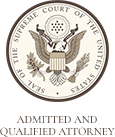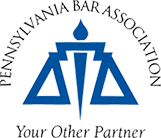If you are a Pennsylvania resident on probation or parole, you know that you must not violate any of the conditions inherent therein. If you do, you will need to undergo two Gagon hearings.
As the Pennsylvania Board of Probation and Parole explains, Pennsylvania has established Gagon hearings as the way to afford you due process whenever probation department officers or law enforcement officers arrest you for alleged probation or parole violations.
Gagon I hearing
Usually, your Gagon I hearing occurs within 10 days after you allegedly violate your probation/parole or within 10 days after officers arrest you for same. At this hearing, a judge will decide whether or not the state has probable cause to believe that you committed a probation or parole violation. As you likely already know, a probation/parole violation can be any of the following:
- Neglecting to check in with your probation/parole officer at the scheduled times
- Failing to pass a drug test
- Neglecting to attend any drug and/or alcohol treatment classes the court ordered you to attend
- Failing to pay when due any fines and/or court costs assessed against you
- Failing to meet any of your other probation/parole conditions
In addition, the judge will decide whether or not you should remain in custody while awaiting your Gagon II hearing.
Gagon II hearing
Your Gagon II hearing operates similarly to your original trial, and usually the same judge presides. As (s)he did at your original trial, your attorney can call witnesses on your behalf and can also cross-examine any witnesses the prosecution calls to the stand at your Gagon II hearing. Unlike your original trial, however, here the prosecution faces a much lower burden of proof. There the prosecutor had to prove beyond a reasonable doubt that you committed the crime(s) law enforcement officers alleged you committed. At your Gagon II hearing, the prosecutor need only prove by a preponderance of the evidence that you committed the probation/parole violation(s) of which you stand accused.
Once both sides have presented all their evidence, the judge will decide whether or not to revoke your probation/parole and send you back to jail or prison.
This is general educational information and not intended to provide legal advice.



